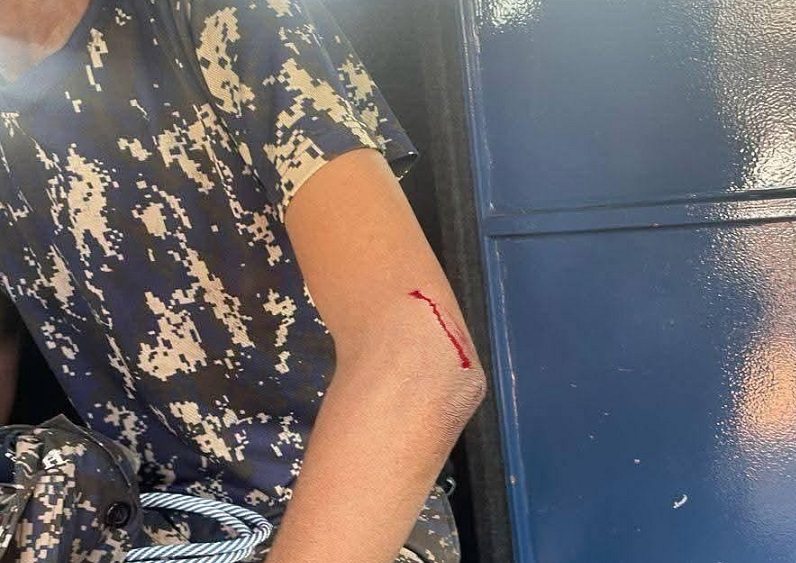In a shocking escalation of tensions in Bawku, in the Upper East Region, the newly appointed Inspector-General of Police (IGP), Christian Tetteh Yohuno, narrowly escaped harm after his convoy was attacked during a security assessment visit on Friday, April 11, 2025.
The IGP—clad in full protective gear—was in the conflict-stricken municipality to gain firsthand insight into the persistent violence plaguing the area.
His convoy, however, came under fire as gunmen believed to be Kusasi youth sprayed bullets at his vehicle. Fortunately, Yohuno escaped unscathed, thanks to his bulletproof vehicle.
In the cause of the bullets spraying, one of the officers was reported injured.
This bold attack on Ghana’s top police official underscores the deteriorating security situation in Bawku, a town long troubled by ethnic and chieftaincy conflict, primarily between the Mamprusi and Kusasi ethnic groups
These tensions have spanned decades, often flaring into violence despite several government and traditional mediation efforts.
The visit by the IGP was part of a renewed effort by national security authorities to de-escalate hostilities.
Yohuno had hoped to engage with local leaders and youth in a dialogue aimed at restoring calm.
However, his reception was far from peaceful.
While initial reports suggested the attack was a response to Yohuno’s plea for peace, Upper East Regional Minister, Akambugri Donatus Atanga, later clarified the situation in an interview with JoyNews.
According to Atanga, the youth were not reacting negatively to the call for peace but were voicing their frustrations with what they perceive as poor handling of the conflict by the state.
Central to the discontent was the IGP’s controversial statement offering priority in police recruitment to Bawku youth—on the condition that they disarm.
Many residents saw this as tone-deaf and insufficient in addressing the root causes of the conflict.
“The people were not hooting at the IGP because he asked them to give peace a chance,” Atanga explained.
“They were upset because they expected tangible steps toward a lasting resolution, not job offers. They want the fighting to stop and peace to return—not token promises.”
Following the backlash, IGP Yohuno issued a public clarification. Speaking to the press, he emphasized that his comments were intended to decentralize the recruitment process—not to incentivize conflict or imply any form of preferential treatment.
“I did not suggest that anyone would bypass the standard recruitment process,” Yohuno stated.
“My point was that young people in conflict-affected areas, such as Bawku, would be encouraged to apply and participate in national service, including the police, provided they meet the standard criteria.”
The IGP also highlighted the importance of representation within the police service, noting that officers from Bawku and surrounding communities could play a pivotal role in maintaining peace if properly integrated into national security efforts.
Despite these assurances, many citizens remain skeptical. Eyewitness accounts and emotional reactions from locals—including teachers and civil servants—paint a picture of a town gripped by fear. One teacher recounted how violence spilled over into nearby Garu, forcing him to flee for safety after soldiers stormed the town.
“This is not a place for promises. This is a battlefield,” he said. “People with no families are running. What do you expect a family man to do?”
The situation in Bawku has reignited nationwide debate over government intervention in volatile regions, with opposition parties and civil society organizations calling for urgent, comprehensive solutions—not just reactive visits and short-term promises.
President John Mahama has also weighed in, condemning the attacks and urging both the government and traditional authorities to intensify efforts to restore peace even though he is in charge.









